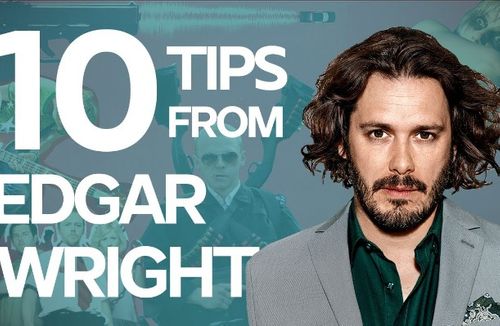10 Filmmaking Tips from Edgar Wright
Sep 20, 2022 · 4 mins read
0
Share

10 Filmmaking Tips from Edgar Wright - Part 1
The name Edgar Wright might ring a bell. He's best known for co-writing & directing the Cornetto Trilogy which consists of Shaun of the Dead (2004), Hot Fuzz (2007), & The World's End (2013), as well as other films like Scott Pilgrim vs. the world (2010) & Baby Driver (2017)
Save
Share
He has a very distinct visual style to his films that is unmistakable from other contemporary directors. These are the 10 tips that he had for fellow filmmakers regardless of if you are making your first film or your fiftieth.
Save
Share
1: Aim to recapture the thrills that you felt watching your favorite films in the cinema.
It's extremely helpful to remind yourself of how cinema has affected you. Remembering what inspired you to become a filmmaker in the first place can inform your own work.
Save
Share
2: Writing what comes from your heart will always turn out better than what you think you ought to write about.
When you are passionate about the subject or the genre that you write about, it becomes blatantly obvious to the audience that they can trust you with the story.
Save
Share
3: Be methodical about plotting out your screenplay. You need a clear idea of where you're heading so you don't get lost or bored along the way.
A story that has every scene matter and a conclusion that makes sense doesn't happen by accident.
Save
Share
Taking the time to craft your story with tools like a beat sheet (a list of story structure beats) will help organize the flow of your story before you begin to waste time writing a story that you don't know how to end or how to set-up and payoff.
Save
Share
4: Keep "creatively procrastinating" by researching until your treatment document starts turning into a screenplay.
Writing sometimes consists very little with putting words on the page. Activities like watching other films, reading books, or just thinking can be useful.
Save
Share
What's important is that the activities that you do help with the development of your story and usually leads you to being ready to dive into writing the script. Be careful that "creative procrastination" doesn't evolve into an excuse not to write at all.
Save
Share
5: Use genre films like a Trojan horse. Sneak in bigger ideas into films that seem superficial at first.
It can be easy to dismiss genre films for not having deep themes or ideas, but genre can be the perfect skin to entertain and enlighten the audience.
Save
Share
Some examples of using genre to sneak in bigger ideas can be found in Jordan Peele's "Get Out" or "Groundhog Day". One is considered a horror, but is a social commentary. While the other is considered a comedy, but is a deep philosophical look at mortality.
Save
Share
0